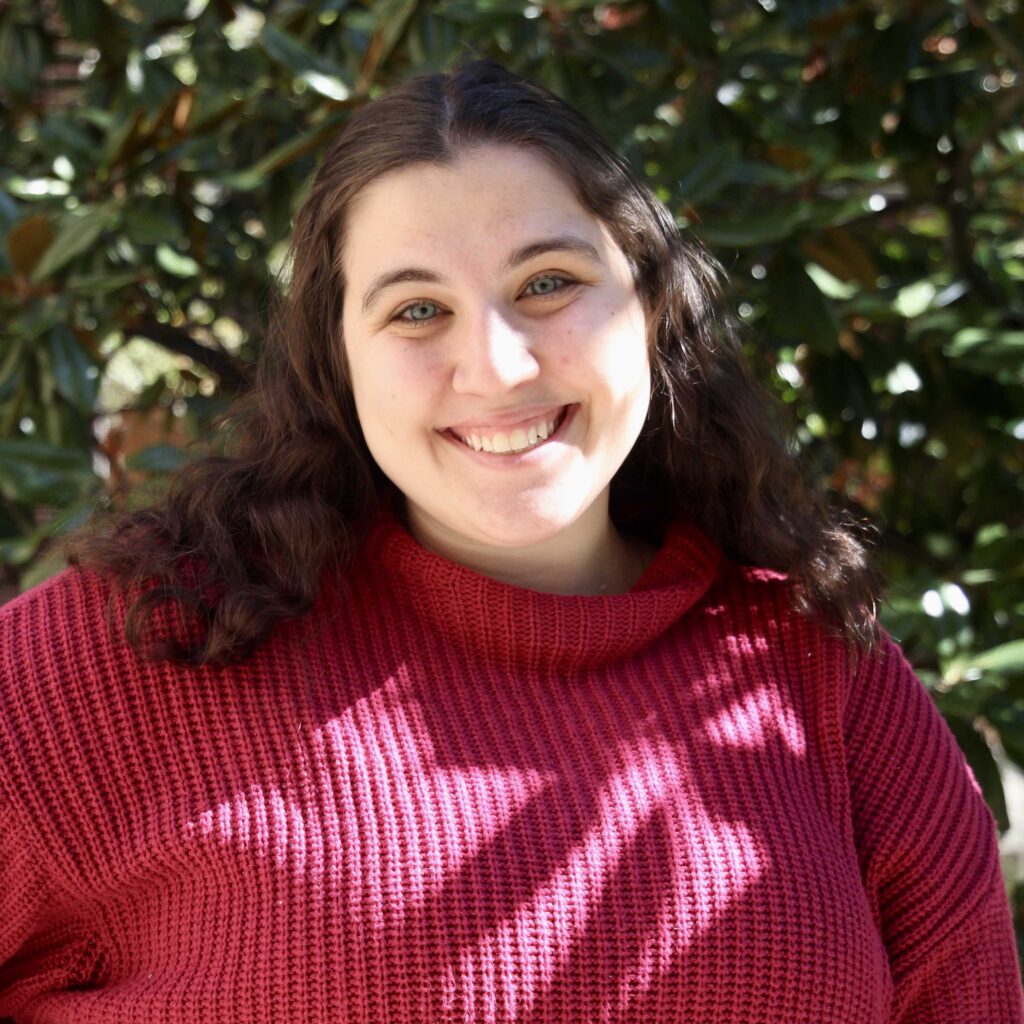Grad Student Spotlight: Amber Dispanet, HDFS
We are pleased to introduce Ms. Amber Dispanet, a Master’s Grad student with CHDFS who was willing to share her experience with us. Many wonder what it’s like to come to UT, work with the faculty, and how to set up a social sphere within the college environment. We think Amber gives great advice and perspective, so she was willing to let us share her experience with you all:

As a first-generation college student, Amber Dispanet arrived at the University of Tennessee’s Human Development and Family Science Graduate Program with a deep-rooted interest in the intersections of crime, family, and violence. “My heart will always belong to the Hokies,” she said of her time at Virginia Tech, where she completed her undergraduate studies. But Knoxville quickly became a new kind of home.
Drawn to UT by both a strong academic fit and personal connection, she recalled, “I initially applied because I loved visiting Tennessee with my college roommate. But I came to UT because I connected with a professor—we had a great rapport.” That professor was Dr. Megan Haselschwerdt. “She’s been the most influential part of my academic experience. I feel supported in a way that goes beyond academics. I always look forward to learning from her.”
Dispanet’s research focuses on young adults’ perceptions of intimate partner violence, particularly violence perpetrated by mothers or fathers and its impact on the mother-child relationship. She’s especially interested in how exposure to family violence during childhood affects well-being into adolescence and adulthood. Her academic background in Criminology and Sociology made the HDFS program at UT a natural next step. “I appreciated that UT’s program focused broadly on children, adolescents, and families—not just one piece.”
While her initial career goal was to work in a Special Victims Unit, her vision has evolved. “Ideally, when I finish my degree, I’d love to work with a family violence agency to develop and implement interventions for kids and young adults exposed to IPV. I want to use my thesis and coursework to really make a difference.”
Outside the classroom, she finds balance in simple joys: “I love Disney World, long walks with my dog Moxxie, wandering through TJ Maxx or HomeGoods, reading on my Kindle, and junk journaling keep me grounded.”
Community has also played a big role in her graduate school experience. “I was nervous moving out of state, but Rebekah, Sami, and Ella—my cohort—changed everything. I can laugh, cry, and just be myself with them. It’s more than academics—it’s family.”
When asked what advice she’d give to others, she offered this: “Of course, academics are important—but don’t lose yourself in the work. Find a routine that lets you recharge. That balance makes all the difference.”